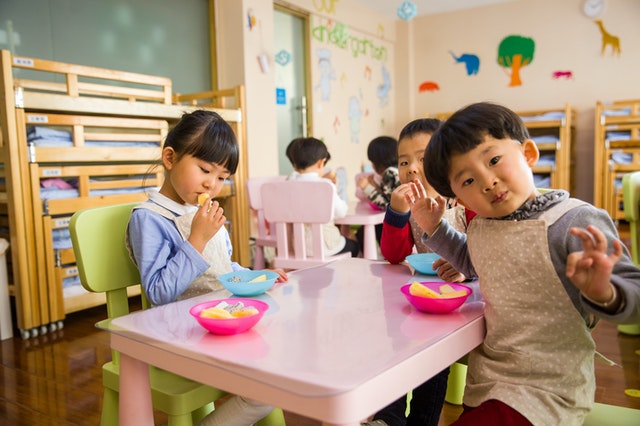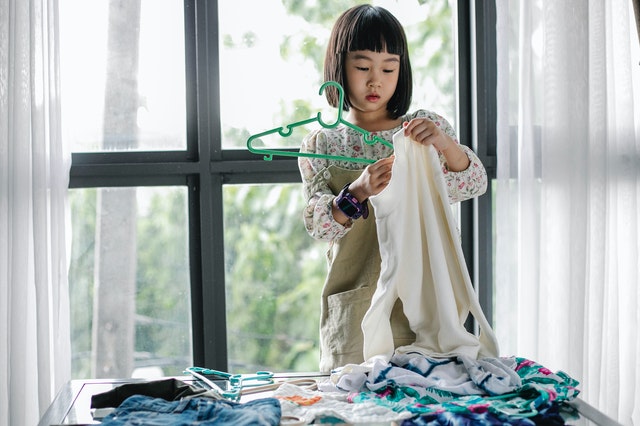Learn how do Japanese discipline children effectively.
From their quiet public streets to their meticulously organized classrooms, Japan’s reputation for order and harmony extends to its children.
Japanese society, deeply rooted in values of respect, responsibility, and group consciousness, fosters well-behaved and disciplined youngsters who navigate the world with maturity and grace. But how do they achieve this?
This article delves into the core values and practical techniques employed in Japanese discipline, offering insights into their cultural approach to raising responsible and confident young people.
Page Contents
How Do Japanese Discipline Children?

Children in Japan are raised with a focus on respect, harmony, and responsibility. This is achieved through a combination of positive reinforcement, gentle guidance, and a clear emphasis on routine and structure.

Parents prioritize praise and encouragement while addressing misbehavior privately and with understanding.
Children are expected to contribute to household chores and participate in community activities, fostering a sense of belonging and collective responsibility.
The ultimate goal is to raise well-rounded individuals who are respectful of others, contribute to society, and persevere in the face of challenges.
Core Values Underlying Japanese Discipline
Emphasis on Respect
- Tatemae and Honne
Navigating the Two Faces of Self: Unlike cultures emphasizing directness, Japanese children learn to navigate the nuanced dance of “tatemae” (outward appearance) and “honne” (inner feelings).
Maintaining a harmonious facade in public while acknowledging genuine emotions in private allows them to develop social grace and respect for social norms.
This duality also fosters empathy, as children learn to understand different perspectives and the importance of adjusting their behavior accordingly.
- Respect for Elders and Authority Figures
Building a Hierarchical Harmony: The hierarchical structure of Japanese society is reflected in the respect accorded to elders and authority figures.
Children learn to bow, use polite language, and prioritize the needs of others above their own. This cultivates a sense of social responsibility and teaches them to contribute to the smooth functioning of the collective.
- Amae: The Paradox of Dependence and Self-Sufficiency
While Western cultures often emphasize early independence, the Japanese concept of “amae” encourages a paradoxical dependence in early childhood.
This safe space of unconditional love and support allows children to build a secure foundation of trust and emotional well-being.
As they mature, this dependence gradually transitions into self-reliance, with parents providing guidance and encouragement instead of strict control.
Harmony and Group Orientation
- Wa
The Symphony of Social Cohesion: “Wa” (harmony) is the leitmotif of Japanese life. Children are taught to prioritize group well-being and avoid conflict.
This extends beyond family; they learn to cooperate with classmates, neighbors, and strangers alike.
This emphasis on consensus-building fosters tolerance, empathy, and a sense of belonging within the community.
- Group Responsibility
Sharing the Burden, Sharing the Success: The Japanese proverb “One nail protrudes, all are hammered down” illustrates the concept of shared responsibility.
Individual actions are understood to impact the entire group, shaping a strong sense of accountability and collective effort.
This translates into children readily participating in communal activities, from cleaning classrooms to helping with neighborhood festivals, nurturing a sense of shared purpose and collective pride.

- Community Involvement
Weaving the Individual into the Social Fabric: From a young age, Japanese children are actively involved in their communities.
They participate in school festivals, local cleaning drives, and traditional ceremonies. This immersion in community life fosters a sense of belonging, teaches social skills, and instills a deep appreciation for shared traditions and values.
Hard Work and Perseverance
- Diligence and Effort
The Seeds of Achievement: Academic and personal achievement are highly valued in Japanese culture.
Children are encouraged to approach tasks with dedication and perseverance, emphasizing effort over innate ability. This fosters a growth mindset, where challenges are seen as opportunities to learn and improve.
- Grit and Resilience
Embracing the Challenge: Difficulties are not seen as setbacks but as stepping stones on the path to growth.
Children are taught to develop grit and resilience, overcoming obstacles with determination and a positive attitude. This fosters a sense of self-efficacy and prepares them for the inevitable challenges life throws their way.
- Delayed Gratification
Cultivating Patience and Purpose: Learning to prioritize long-term goals over immediate gratification is a key facet of Japanese discipline.
Children are encouraged to save, delay rewards, and dedicate themselves to long-term endeavors, such as mastering a skill or pursuing academic ambitions. This teaches them patience, planning, and the value of delayed gratification.
Practical Techniques Shaping Behavior
Positive Reinforcement
- Frequent Praise and Encouragement
Unlike cultures that may rely heavily on reprimands for misbehavior, Japanese parents prioritize acknowledging and celebrating good behavior.
This constant positive reinforcement builds children’s self-esteem and motivates them to continue making positive choices.
Words of encouragement are often used, and simple gestures like a pat on the back or a shared smile can hold immense value.

- Focus on Effort and Learning
Japanese discipline goes beyond simply rewarding the end result. Parents are keen to acknowledge the effort and dedication put into a task, even if the outcome isn’t perfect.
This emphasis on the learning process rather than just the final product fosters a growth mindset and encourages children to embrace challenges as opportunities for improvement.
- Natural Consequences
Learning from Real-world Experiences: While consequences for misbehavior are inevitable, Japanese parents often prefer allowing children to experience the natural consequences of their actions where possible.
This might involve letting them stay up late after ignoring bedtime or letting them get wet because they refused to wear a raincoat.
These real-world lessons encourage accountability and help children understand the cause-and-effect relationships inherent in their choices.
Gentle Guidance and Correction
- Private Reprimands and Reflection
Instead of public reprimands that can cause shame and embarrassment, Japanese parents address misbehavior in private.
This allows for calm and rational discussions where children can reflect on their actions and understand the impact they had on others. Parents often use open-ended questions and active listening to encourage introspection and genuine remorse.
- Emphasis on Understanding and Empathy
Before correcting a child, Japanese parents prioritize understanding the reasons behind their behavior. This might involve considering the child’s age, emotional state, and any external factors that might be influencing their actions.
This empathetic approach builds trust and strengthens the parent-child bond, making it easier for children to accept guidance and learn from their mistakes.
- Non-violent Discipline: Building Respect, Not Fear
Physical punishment is considered counterproductive and even harmful in Japanese culture. Parents instead rely on gentler forms of discipline, such as time-outs, revoking privileges, or calmly explaining the consequences of misbehavior.
This emphasis on non-violent discipline fosters respect and trust between parent and child, creating a positive and supportive environment for learning and growth.
Routine and Structure
- Clear Expectations and Boundaries
Japanese children thrive on consistency and routine. Parents establish clear expectations regarding behavior, chores, and daily schedules.

This creates a sense of predictability and security for children, allowing them to focus on learning and development without constantly needing to guess what is expected of them.
- Shared Responsibility in Household Tasks
From a young age, Japanese children are involved in household chores. This might involve simple tasks like setting the table, sweeping the floor, or helping with younger siblings.
Contributing to the household fosters a sense of responsibility, teaches valuable life skills, and instills a healthy sense of pride in taking care of their shared space.
- Emphasis on Self-reliance and Independence
As Japanese children mature, they are gradually given more autonomy and responsibility.
Parents encourage them to make their own decisions, solve problems independently, and manage their own schedules. This fosters self-reliance, confidence, and a sense of ownership over their lives.
Conclusion
The Japanese approach to discipline offers a unique blend of positive reinforcement, gentle guidance, and structured routines that shape respectful, responsible, and resilient individuals.
While cultural differences necessitate considering context, the underlying principles of empathy, self-reflection, and shared responsibility offer valuable insights for parents raising children in any culture.
Remember, the journey of discipline is a continuous one, requiring patience, adaptability, and a deep love for your child.





